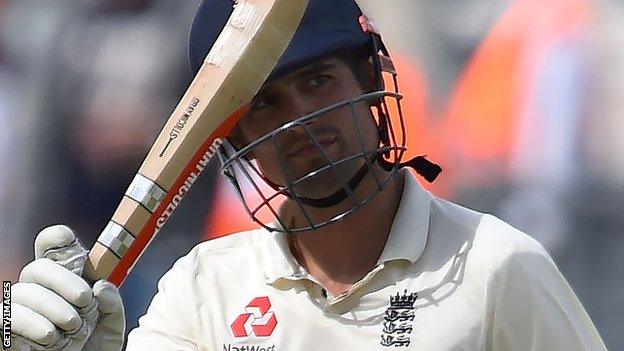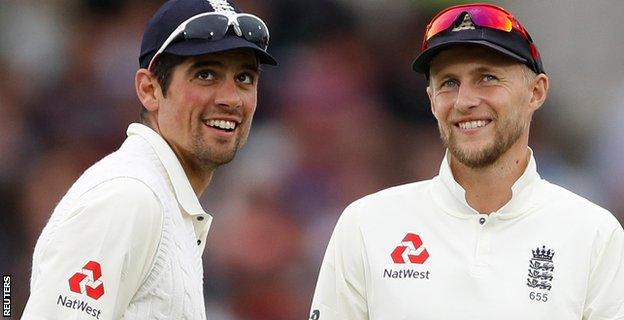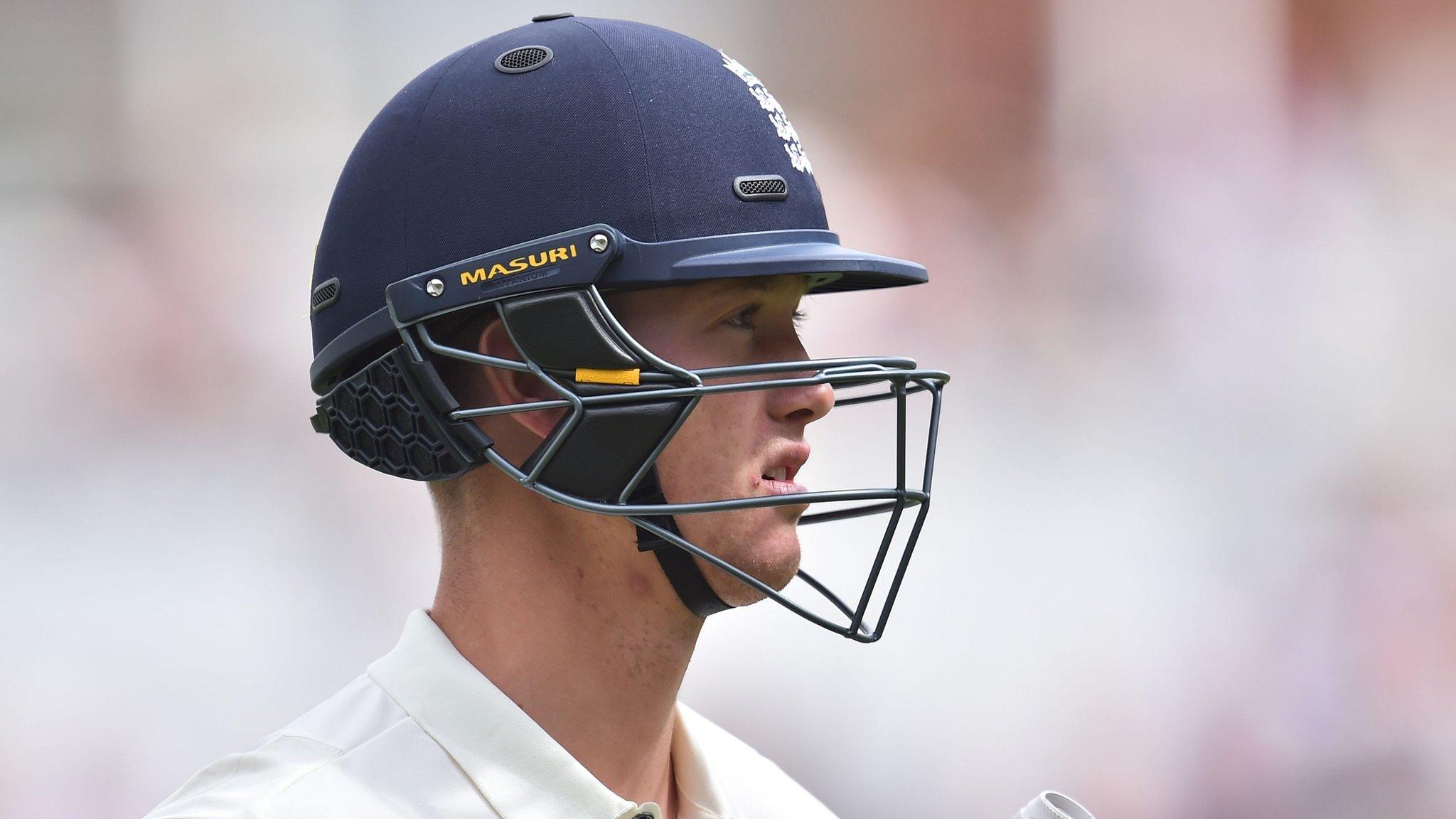Alastair Cook: England batsman on motivation, captaincy and criticism
- Published

Alastair Cook has scored 11,269 Test runs for England - including 30 centuries - since making his debut in 2006
England batsman Alastair Cook says he has found new motivation to carry on playing Test cricket.
Cook gave up the captaincy in February after a record 59 Tests in charge, but opted to continue playing.
He told BBC Sport that matches such as England's third Test victory over South Africa on Monday have offered him a new perspective on playing.
"There have been moments where you question yourself and your motivation," the 32-year-old said.
"But then you get weeks like last week, and days like Monday, where you're winning and you're so involved in it."
By last week, Cook means the third Test at The Oval - a Test which saw a hat-trick, a dream debut and a mix of entertaining and gritty batting as England registered an emphatic 239-run win.
He was at the other end when his Essex team-mate Tom Westley, who has known Cook since he was 14, made his international debut in London, and it is those moments that have convinced Cook to carry on.
"Watching him go through the trials and tribulations of becoming a professional cricketer, to realise his dream, and then we come through at the other end as really good mates and seeing his whole family come down to The Oval - it makes you realise that is why you want to carry on playing," Cook said.
"To have special moments like that makes you see that that 'yes, I do want to carry on' and I am very motivated to do it. If it does end tomorrow, I'll be sad but I'll be proud of what I've achieved."
'You think more negatively of the what ifs'
Archive: Alastair Cook - one of England's greats
As captain, Cook saw series victories in South Africa and India, as well as two Ashes wins on home soil, with Cook himself becoming the first Englishman to reach 10,000 Test runs in this period.
However, there were difficult times. A 5-0 series whitewash in Australia, the ongoing Kevin Pietersen saga and a perception of Cook himself as being a dour captain meant he was often under pressure.
"It's definitely different without the captaincy and I do feel less under pressure in the field," he said.
"On Monday, when South Africa were chasing - if I was captain on that Sunday night, I would definitely have had a broken sleep. I would have been worried and a lot more nervous.
"As it was, I turned up on Monday thinking 'we can win this quite easy'. But if I was captain, I would have been thinking 'what if this goes badly wrong; what if this happens, what if that happens'.
"You start to think a lot more negatively of the what ifs. As a player, you don't have that type of pressure. Maybe because, as captain, you are ultimately responsible for everything that goes on on the field and you feel it more. It's only when you win games that you feel what's changed."
Too conservative to captain?
When Cook first took over from Andrew Strauss in 2012, his first full series in charge saw England beat India on the sub-continent, in conditions England have historically struggled in.
Cook scored runs, breaking the record for most Test centuries for England along the way, but by the time his side had sunk in the Ashes 18 months later, Cook was no longer the golden boy.
"I think it's very hard to shake what people first think of you straightaway. When I first came into the side as captain, I was accused of being quite conservative, quite negative, and just doing what Andrew Strauss did," he continued.
"Maybe I did for the first little bit. I was new to it and as you grow into the role, you feel more comfortable doing it. You can change and hopefully I did improve as captain.
"If it's going well, it's brilliant, if it's not, you're the worst captain ever. What I can say is, we won some great series. If someone had offered me that at the start, I would have snapped your hand off. The stuff in between was just part and parcel."
'Criticism is so instant'

Alastair Cook (left) handed over the captaincy to Joe Root this year
Cook has avoided social media when his team-mates have embraced it, and he thinks it now puts more pressure on new players.
"I do think it builds the pressure the guys are under - not in terms of the cricket and playing, and what you're trying to achieve, but certainly in terms of the scrutiny, even since the day I started, because it is more instant.
"I made my debut in 2006 and absolutely, there was the pressure of the cricket, but there was no social media. There was no direct feedback to your phone. If you wanted to, you could avoid it.
"Now, from the moment you're out, if you're on social media, someone can be sitting at home, and if you've played a bad shot or bowled a bad spell, they can almost directly get in contact with you. Every ball is there for someone to see."
Perceptions of England, and of Cook the batsman, have changed in recent years. Despite winning the Ashes in the summer of 2013, Cook's team received a mixed reaction from fans. While appreciative of their success, some fans seemed to find it difficult to warm to individuals in the team.
"I remember sitting with Matt Prior when he was really struggling with his Achilles injury and his hand injury and he was going to take a break from the game, and we were sitting at Lord's talking about it," Cook said.
"If you'd read the things that were said five minutes before he announced the break, certainly on social media - 'we've got to get rid of Matt Prior,' all that sort of thing - and then as soon as he announced he was going to take a break, which unfortunately he never came back from, it was 'oh we're going to miss Matt Prior, what a great servant, what a great player, how are we going to replace him?' and it was an amazing thing, to see that difference.
"It shows what sport does, really. You're never as good as people say you are and you're never as bad as people say you are. You're always in the middle at some stage."
- Published31 July 2017

- Published31 July 2017
